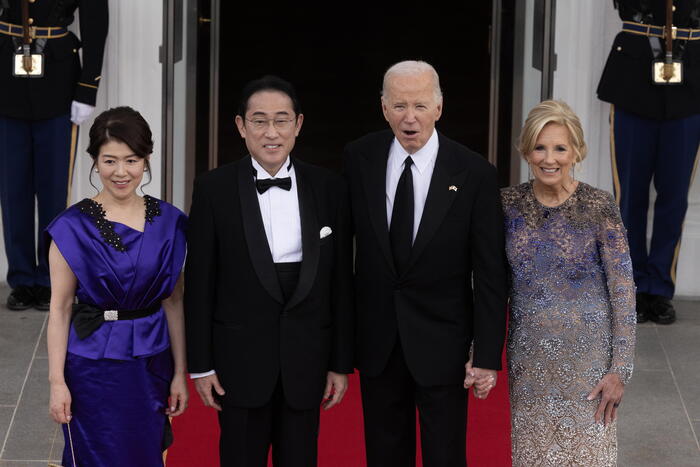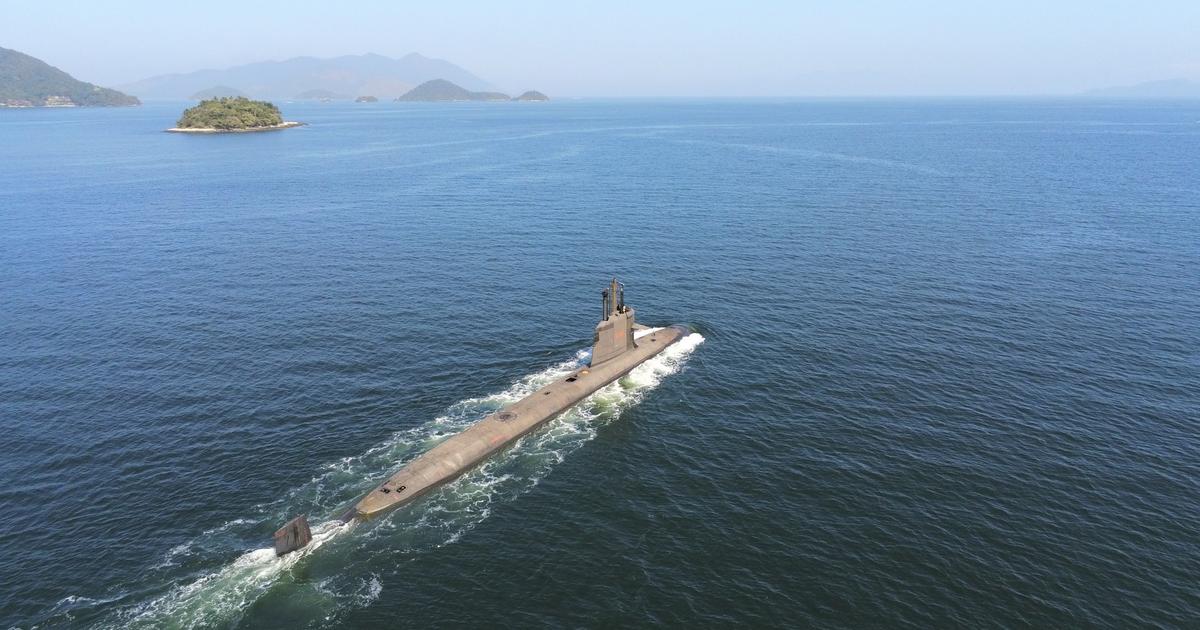Germany wants to show more presence in the Indo-Pacific, also because of China's robust presence in the region. An expert classifies the plans of Defense Minister Pistorius.
Munich – When the frigate "Bayern" left its home port of Wilhelmshaven in the summer of 2021 and set course for the Far East, the German Ministry of Defense was still headed by Annegret Kramp-Karrenbauer. The Brandenburg-class warship covered around 43,000 nautical miles in the following seven months – on a mission that was officially declared a "training cruise".
Above all, however, the crew of the "Bayern" was concerned with making a presence felt in a region that had been neglected by German politics for years: the 180 crew members sailed across the Horn of Africa and Australia via Japan, South Korea and Vietnam and past China to Singapore. It was the first time in almost two decades that a German warship had been sent to the Indo-Pacific.
Now Kramp-Karrenbauer's successor Boris Pistorius announced the continuation of this historic mission. Next year, another frigate will be sent to the Indo-Pacific, then accompanied by a supply ship, Pistorius said last weekend in Singapore at the Shangri-La Dialogue defense forum. According to the minister, the mission is not directed against any particular state, on the contrary: the two ships "are committed to protecting the rules-based international order to which we are all signatories and from which we should all benefit – whether in the Mediterranean, the Bay of Bengal or the South China Sea".
Boris Pistorius and his Chinese counterpart Li Shangfu met in Singapore at the Shangri-La Dialogue. © Britta Pedersen/dpa
Message to China: "committed to contributing to peace and security in the Indo-Pacific region"
However, Pistorius' announcement was probably intended primarily as an announcement to China, which is becoming increasingly self-confident in the region. Beijing claims almost the entire South China Sea as its own sovereign territory and has been building reefs into islands for years – which it then fortifies militarily. Beijing ignores a 2016 ruling by the International Court of Arbitration in The Hague rejecting China's claims. At the same time, there are repeated clashes with the United States in the region – most recently, according to the US Pacific Command, a Chinese jet approached a US reconnaissance aircraft in an "unnecessarily aggressive" manner. Incidents like this are on the rise. And the federal government seems to recognize that it can no longer avert its gaze.
Germany feels "obliged to contribute to peace and security in the Indo-Pacific region," Pistorius said in Singapore. And for good reason: the world's most important trade route runs through the South China Sea. It is estimated that one-third of the world's traded goods pass through the region. A blockade, for example by China, would be a catastrophe for Germany as an export nation.
Observers are particularly concerned about the situation in the Taiwan Strait. The strait, which is only 130 kilometers wide at its narrowest point, separates the People's Republic of China from the democratically governed island state of Taiwan, which Beijing considers part of its own territory and wants to unite with the mainland by force if necessary. "Half of all container ships in the world pass through the Taiwan Strait," analyst Alexander Görlach told IPPEN. MEDIA. The China expert is, among other things, a senior fellow at the Carnegie Council for Ethics in International Affairs. "For Germany, the world's leading exporter, it is therefore of fundamental importance that the passage remains open and Taiwan remains free," he says. In addition, Germany is dependent on Taiwan's microchip exports. Görlach therefore calls for Germany to take a stand in the Taiwan conflict.
0
Also Read
"Putin's decline": President shies away from citizens' questions on state TV
READ
Tank attacks launched: Ukrainian offensive breaks through Putin's front line
READ
Putin tries to be an anti-woke hero – to undermine US aid to Ukraine
READ
New "window accident" in Russia: Next top official falls to his death
READ
"Anarchy at the front": Prigozhin's Wagner Group causes unrest in Russia
READMone area
"Berlin must show China that an invasion of Taiwan would have drastic consequences"
"The Taiwan Strait is an international body of water," says Görlach. The U.S. and most Western governments, as well as the Taiwanese themselves, take a similar view. China, on the other hand, considers the Taiwan Strait to be its own territorial waters. Görlach demands that the frigate, which Germany plans to send to the region in 2024, should also cross the Taiwan Strait to "underline applicable law". At that time, the "Bavarians" had made a bow around the strait so as not to provoke Beijing.
Görlach believes that Germany must be self-confident, even though China is Germany's largest trading partner. "Berlin must show Beijing that the invasion of the peaceful island democracy of Taiwan would have drastic consequences, which in their entirety could break the Communist Party's rule over the people of China," he says. Western sanctions could inhibit China's economic growth and thus also endanger the power base of state and party leader Xi Jinping.
However, there is still no consensus in the traffic light coalition on the question of how Germany should deal with increasingly authoritarian China. The long-announced China strategy has been a long time coming. What the SPD, Greens and FDP can agree on, however, is that Germany must free itself from its economic dependence on Beijing, keyword "risk minimization".
China expert: Europeans need a "common strategy"
Here, too, the Indo-Pacific region plays a key role. Under the slogan "China plus one", German Chancellor Olaf Scholz and Economics Minister Robert Habeck campaigned for new partners in the Far East at the Asia-Pacific Conference of German Business in Singapore last year. And in India, Boris Pistorius announced this week that he wanted to make it much easier to cooperate with the Chinese Asian counterpart. First, a memorandum of understanding was signed for a joint submarine project worth more than five billion euros.
As early as 2020, the German government, then still under Angela Merkel, had issued "Guidelines on the Indo-Pacific". China's ambition to become a great power is now forcing Berlin to fill it with life. However, it remains to be seen how Germany would react if China were to get serious and actually attack Taiwan. The U.S. would probably intervene militarily. However, just under one in four Germans thinks that the Federal Republic should get involved in the conflict, according to a recent survey commissioned by the think tank European Council on Foreign Relations. 60 percent say Germany must remain neutral. It is questionable whether it could.
In any case, for Alexander Görlach, it is crucial that Germany does not act alone in the region, but in cooperation with its European partners. "In a way, Germany, like France, is under the illusion that it is large and relevant enough on its own, as a kind of middle power, to implement its own policy towards China and India. But that's not the case," he says. The Europeans can only keep up with the new powers of the Global South "if they agree on a common strategy".




/cloudfront-eu-central-1.images.arcpublishing.com/prisa/OORXB2YNDLANHK3OYLEUMD7SPM.jpg)




